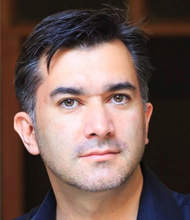
Comparative Humanities
Education
- Ph.D. in Modern South Asian & Middle Eastern History, University of Michigan, Ann Arbor, USA
- M.A. in Islamic Studies, University of Michigan, Ann Arbor, USA
- B.A in Philosophy, Rhodes College, USA
Teaching Experience
- University of Colorado, Department of Geography Assistant Professor (South Asia, Political Islam, Cultural Geography) 2010 — 2018
- Instructor Human & World Geography 2006 — 2009
- University of Santa Clara, Department of History Academic Year Lecturer in South Asian History 2005 — 2006
- Madison College, Michigan State University, International Relations Visiting Lecturer in Contemporary Muslim History, Culture and Politics 2004 — 2005
- University of Michigan, Department of History Various Lectureships and Teaching Assistantships 1993 — 2003
Research Interests
My research in cultural and political geography and historical and political thought has been largely focused on the problems of militarization, nationalism, terrorism, and the spatial architectures of war and violence in South Asia.
In particular, I am interested in the genealogy of the alliance between the Pakistan army and orthodox sectarian schools within Sunni Islam. This mullah-military complex, and its subsequent entanglement with regional and global geopolitical forces, has intensified the politicization of religion, a phenomenon most commonly associated with groups like the Taliban.
Biography
Najeeb Jan graduated with a BA in philosophy from Rhodes College in 1991, after which he pursued his MA in Islamic Studies from the University of Michigan, Ann Arbor, USA. He completed his dissertation in Modern South Asian and Middle Eastern History at the University of Michigan, under the supervision of Drs. Juan Cole and Nicholas Dirks. After completing eighteen months of archival and ethnographic field work in Pakistan, he defended his dissertation, entitled “Pakistan, The Deoband ‘Ulama and the Biopolitics of Islam” in August of 2009.
Over the past many years, he has had the privilege of teaching a range of classes related to Political Geography, South Asian History, postcolonial geographies of Empire, Political Islam, Islamic Studies, and Social & Political Theory.
Echoing the very archaic roots of the word seminar, his primary goal as a teacher has been to implant a passion for critical thinking and to inculcate an appreciation for the nuances, challenges and complexities of postcolonial global politics. Given that our current collective ways of governing and inhabiting the world are no longer sustainable, given the ubiquity of violence, injustice, suffering and inequality across the globe, and in full view of our marked fragility in the age of what many geographers are calling “the Anthropocene,” his classes are charged with a sense of the urgency to forge new paths of thinking in order to confront the multiple crisis of our time.
For him, the task of teaching is an invaluable concomitant to the process of scholarship and research. Not only does he thoroughly enjoy and value the experience of teaching, he also finds it an ongoing challenge to translate the significance and substance of one’s own work in ways that are meaningful and useful to a wide and diverse spectrum of students. The task of crafting and honing effective pedagogic skills is of course a continual and ongoing process. However, whenever he has had the opportunity to teach, he strived not only to provide a lucid introduction to the specifics of the subject, but also to inculcate a sense of self-reflexivity; i.e. to question what constitutes knowledge and understanding in the first place, and to suggest the fundamentally interpretive character of social science inquiry, and the contextually embroiled and politicized nature of the inquirer.
Honors and Awards
- IRISS’s Project Society, Navigating the Politics and Ethics of Drones, 2016
- Innovative SEED Grant Program; Co-PI on “Transnational Discourses of Islamic Community”, University of Colorado 2007
- US Department of Education UISFL, Course Development Award 2006
- American Institute of Pakistan Studies, Short Term Fellowship 2003
- Advanced Studies Center Fellowship, International Institute, Un. of Michigan 2001 – 2002
- American Institute of Pakistan Studies, Dissertation Research Grant 2000 – 2001
- SSRC, International Dissertation Research Fellowship 1997 – 1998
- Graduate Instructor Fellowships, Department of History 1995 – 1997
- Alice Llyod Resident Teaching Fellow, Pilot Program, University of Michigan 1993 – 1995
Selected Publications
- Jan, N. 2019. The Metacolonial State: Pakistan, Critical Ontology and the Biopolitics of Islam, (Antipode Series, Blackwell Press, March 2019)
- Jan, N. 2013. “What Will Pakistan Look Like in 2023” ABC-CLIO World Geography Resources
- Jan, N. 2002. “Research Report: Writing Deoband History,” Pakistan Studies News (vol. 4, no. 1, Spring)
- Jan, N. and V. Zamindar. 1996. “The Battlefields of Karachi: Ethnicity, Violence & The State.” The Journal of the International Institute, University of Michigan, (vol. 4, no. 1).








